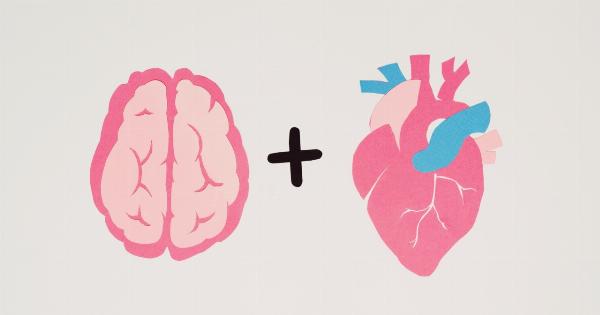Heart attack is a deadly disease that can affect anyone, but it is preventable. Making lifestyle changes can significantly reduce the risk of heart attack. Here are the top 30 lifestyle changes that can help prevent heart attack:.
1. Quit Smoking
Smoking is the leading cause of heart attack. Quitting smoking is one of the best things you can do to prevent heart attack.
2. Get Active
Exercise helps keep your heart healthy. Aim for at least 30 minutes of moderate-intensity exercise most days of the week.
3. Eat a Heart-Healthy Diet
Eating a diet that is low in saturated and trans fats, cholesterol, and added sugars can help prevent heart attack. Include plenty of fruits, vegetables, whole grains, and lean proteins in your diet.
4. Maintain a Healthy Weight
Being overweight or obese increases the risk of heart attack. Maintaining a healthy weight can help prevent heart attack.
5. Manage Stress
Stress can increase blood pressure and heart rate, which can contribute to heart attack. Managing stress through techniques like meditation, yoga, or deep breathing can help prevent heart attack.
6. Get Enough Sleep
Lack of sleep can increase the risk of heart attack. Try to get at least 7-8 hours of sleep each night to help prevent heart attack.
7. Limit Alcohol Intake
Drinking too much alcohol can increase the risk of heart attack. Limit your alcohol intake to one drink per day for women and two drinks per day for men.
8. Manage High Blood Pressure
High blood pressure is a major risk factor for heart attack. Managing high blood pressure through lifestyle changes and medication can help prevent heart attack.
9. Manage High Cholesterol
High cholesterol can contribute to heart attack. Managing high cholesterol through lifestyle changes and medication can help prevent heart attack.
10. Manage Diabetes
Diabetes can increase the risk of heart attack. Managing diabetes through lifestyle changes and medication can help prevent heart attack.
11. Get Regular Checkups
Regular check-ups with your doctor can help identify and manage any risk factors for heart attack.
12. Avoid Processed Foods
Processed foods are often high in salt, sugar, and unhealthy fats, which can increase the risk of heart attack. Choose fresh, whole foods instead.
13. Choose Healthy Fats
Healthy fats like those found in nuts, seeds, and avocados can help lower the risk of heart attack. Avoid unhealthy fats like those found in fried and processed foods.
14. Reduce Sodium Intake
Too much sodium can increase blood pressure, which can contribute to heart attack. Choose low-sodium options and avoid adding salt to your food.
15. Stay Hydrated
Drinking enough water can help keep your heart healthy. Aim for at least 8 cups of water per day.
16. Avoid Sugary Drinks
Sugary drinks like soda and juice can contribute to heart attack. Choose water, unsweetened tea, or low-sugar options instead.
17. Cook at Home
Preparing meals at home can help you control the quality and nutritional content of your meals. This can help reduce the risk of heart attack.
18. Eat More Fiber
Fiber can help lower cholesterol and blood pressure, which can reduce the risk of heart attack. Choose foods like fruits, vegetables, whole grains, and legumes that are rich in fiber.
19. Choose Lean Proteins
Choosing lean proteins like chicken, fish, and beans can help reduce the risk of heart attack. Avoid processed meats like hot dogs and bacon.
20. Brush and Floss Regularly
Oral health is linked to heart health. Brush and floss regularly to help prevent heart attack.
21. Avoid Sitting for Long Periods
Sitting for long periods can increase the risk of heart attack. Take frequent breaks to stand and move around.
22. Choose Whole Grains
Whole grains like brown rice and quinoa can help lower cholesterol and reduce the risk of heart attack. Choose whole grain options when possible.
23. Eat More Fruit
Fruit is a good source of fiber, vitamins, and minerals, which can help reduce the risk of heart attack. Aim for at least 2-3 servings of fruit per day.
24. Meditate
Meditation can help reduce stress, lower blood pressure, and decrease the risk of heart attack. Try meditating for at least 10 minutes per day.
25. Avoid High-Fat Dairy Products
High-fat dairy products can increase cholesterol and contribute to heart attack. Choose low-fat or fat-free options instead.
26. Try a Plant-Based Diet
A plant-based diet can help lower cholesterol and blood pressure, which can reduce the risk of heart attack. Try incorporating more fruits, vegetables, and plant-based proteins into your diet.
27. Take Steps to Prevent Infections
Infections like flu and pneumonia can increase the risk of heart attack. Take steps to prevent infections, like getting vaccinated and washing your hands frequently.
28. Get Enough Vitamin D
Vitamin D can help prevent heart attack. Try to get enough vitamin D from sunlight, food, or supplements.
29. Cut Back on Caffeine
Too much caffeine can increase heart rate and blood pressure, which can contribute to heart attack. Limit your caffeine intake to 400mg per day.
30. Stay Positive
A positive outlook on life can help reduce stress, lower blood pressure, and reduce the risk of heart attack. Surround yourself with positive people and activities.























